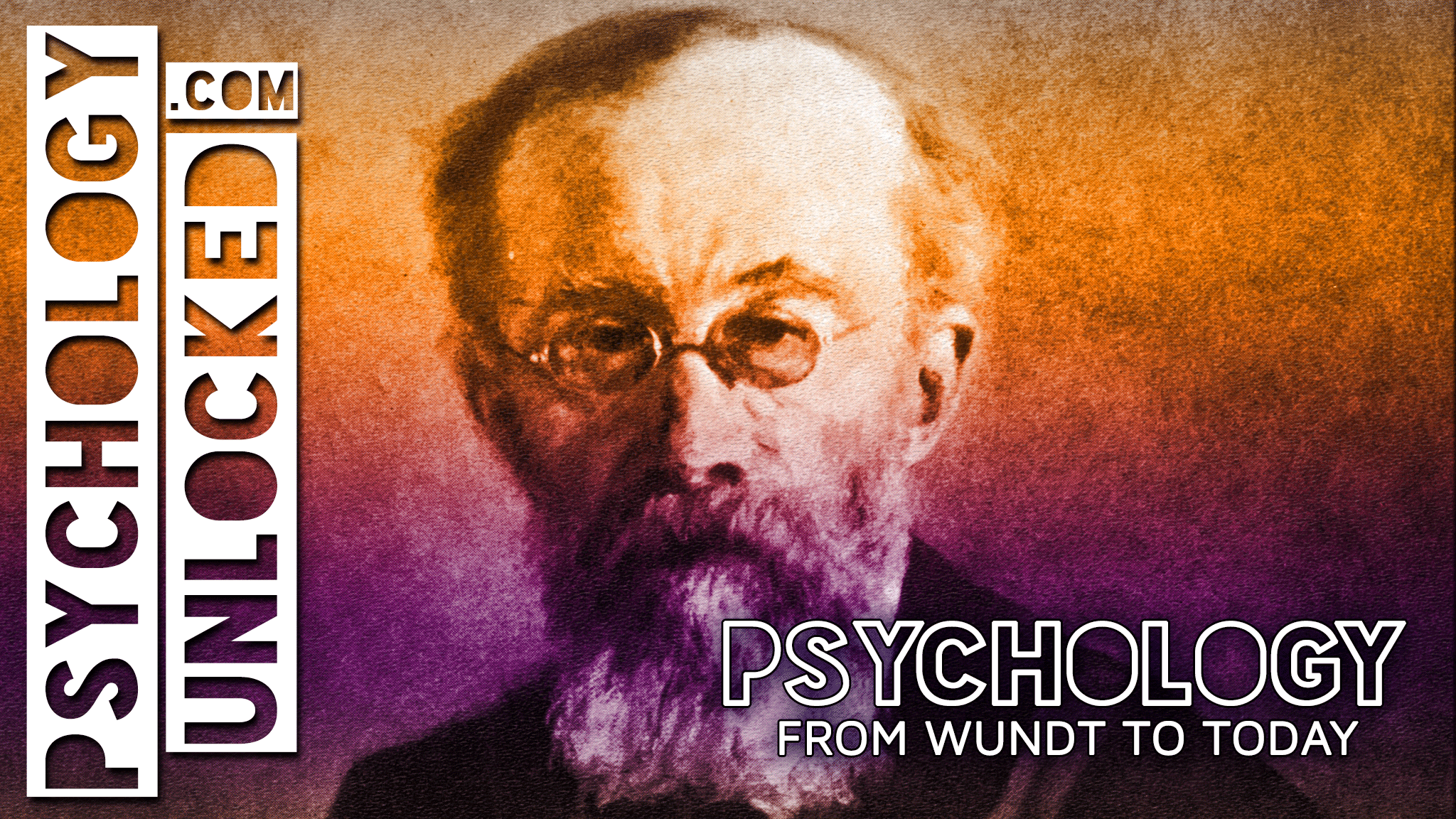
SCROLL DOWN FOR VIDEO
Psychology is roughly 200 years old, and even though some of the questions that psychologists ask are way older than that, the science of psychology is relatively young.
It was all “started” in the 19th Century by a German scientist called Wilhelm Wundt.
In this article, we’ll take a whistlestop tour through the decades, from Wundt’s Structuralism through to today.
- The Dunning-Kruger Effect: Why we think we know more than we do
- The Yale Food Addiction Scale: Are you addicted to food?
- Addicted to Pepsi Max? Understand addiction in six minutes (video)
Is Psychology a Science?
Psychology is a science thanks to the foundational work of Wilhelm Wundt.
Wundt, who ran the Leipzig Laboratory in Germany, was the first self-titled Psychologist.
He also wrote the first ever Psychology textbook: Principles of Physiological Psychology.
The German academic system of the 19th Century was the perfect setting for the birth of a new scientific discipline as subjects (even traditional arts subjects) were approached through a scientific lens.
Whilst academics across Europe were discussing Psychology from a philosophical position, Wundt was getting empirical.
Structuralism
Wundt’s psychology was the “science of immediate experience” and his research was primarily focused on the structure of the mind.
He trained subjects to be observers of their own consciousness by engaging in introspection.
Wundt had three fundamental goals in his work:
- To analyse the content of conscious experience.
- To work out how the elements of consciousness are connected.
- To create a law that would explain the connections.
Whilst Wundt has undeniably been an influential figure in the development of Psychology, his approach has been largely dismissed and structuralism is a historical approach rather than something that is still used today.
Functionalism
Following Structuralism, the next major trend in Psychology came from the USA in the form of Functionalism.
Perhaps the most famous functionalist was William James, who said: “My thinking is first, last, and always for the sake of my doing”.
Therefore, the theory followed, study what a do to understand what I think.
Functionalists were more interested in process (function) rather than components (structure) of consciousness.
Psychodynamic Theory
Freud didn’t invent Psychology, but it’s possible that he is the world’s most famous psychologist.
His work has been hugely influential, even if some of it has been largely dismissed.
Freud’s initial work was tied very strongly to biology. It wasn’t until later that his theory of psychodynamics and the concept of the id, ego and superego came into form.
Behaviourism
We’re still within a few decades of Wundt’s initial work at this stage, and behaviourism can be seen as a logical development of Functionalism.
Behaviourists were interested in the role of learning on behaviours, but their main premise was that behaviours were the important factor in studying psychology, not hidden mental processes.
Perhaps the most famous behaviourist quote comes from John B. Watson:
“Give me a dozen healthy infants, well-formed, and my own specified world to bring them up in and I’ll guarantee to take any one at random and train him to become any type of specialist I might select – doctor, lawyer, artist, merchant-chief and, yes, even beggar-man and thief, regardless of his talents, penchants, tendencies, abilities, vocations and race of his ancestors.”
Watson, 1930
Other prominent behaviourists include Ivan Pavlov, with his experiments on dogs’ salivations, and a little later into the middle of the 20th Century, B.F. Skinner.
The Cognitive Revolution
Behaviourism held the mainstream of Psychology for a number of decades. However, as computing technology developed during the Cold War, a new movement in Psychology launched that considered the human brain as a computing machine of its own.
The Cognitive Revolution, as it is now known, returned Psychology to the study of hidden mental processes.
Cognitive psychologists often use an approach called information processing – our brain is like a computer, processing information and there are set rules that determine what happens with each piece of data.
The Biological Revolution
Massive advancements at the end of the 20th Century have allowed Psychologists to see inside the living human brain for the first time.
The developments in brain imaging technology has led a new wave of biological psychology, this time with techniques that Wilhelm Wundt could only have dreamed of.
All Psychology, All Different
Psychology is an umbrella term for the discipline that studies the human mind and behaviours.
It comes in many forms and the wide range of specialisms don’t always agree.
However, by tackling questions from multiple angles, pychology as a whole has been able to contribute a great deal to our growing understanding of what it is to be human.
Wilhelm Wundt was quite the influential guy!
